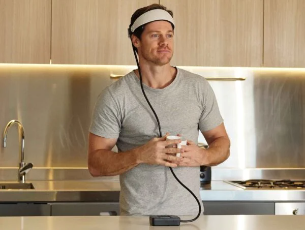Vitamins are organic compounds that are necessary for the proper functioning of our bodies. They should be taken in the body in adequate amounts. A deficiency or an overdose can cause adverse effects, and in extreme cases, the adversities can become chronic.
Our diet has a direct relationship with our health and sleeping patterns. To overcome sleep disorders, we can include specific vitamins and minerals in our diet, facilitating a night of deep restorative sleep. These can also be consumed in the form of vitamin supplements. The most effective supplements for the treatment of sleep disorders are melatonin fortified supplements.
Some famous brands that manufacture these supplements include Garden of life, Nature Made, Gummies Garden, Olly, Wink Natural, Luna, etc. These sleep disorders preventing melatonin gummies help you not only combat such disorders but also prevent many chronic illnesses.
The following vitamins are associated with the quality of our sleep. A deficiency of these can disrupt deep sleep, which in turn causes our immune system to weaken. Prolonged periods of sleep deprivation can cause high blood pressure, heart diseases, diabetes, and obesity.
Following vitamins should be taken for the prevention of sleep deprivation.
Vitamin D
Vitamin D has always been associated with the health of our bones. In addition, it also plays an essential role in mood regulation, immune system strengthening, and inflammation control.
Along with these benefits, it is also correlated with its advantages in regulating sleep disorders. New research suggests that a lack of vitamin D can affect our nighttime sleep, which indicates a relationship between vitamin D and sleep duration.
Another study revealed that a lack of Vitamin D increases the risk of sleep apnea. The extent of vitamin D deficiency determines the severity of sleep apnea. Lower levels of vitamin D have been associated with chronic cases of OSA. Also, for the treatment of sleep apnea, consumption of vitamin D significantly improves symptoms.
Moreover, vitamin D also regulates our circadian rhythm, which is an internal biological clock. Research proves that two circadian clock genes are activated through adequate consumption of vitamin D. These two genes of the circadian clock are responsible for controlling our 24-hour rhythms. As light is a chief regulator of our internal clock, and the sunlight is also a source of vitamin D, the connection makes sense.
Vitamin E
Vitamin E is a powerful antioxidant that aids in the maintenance and protection of healthy cellular function. Vitamin E also boosts immune system function. Also, sleep-related health problems are resolved through the antioxidant ability of vitamin E.
Vitamin E also plays a significant role in the protection of sleep-related memory. Our brain processes the newly acquired memories and information during both REM sleep and slow-wave sleep. Sleep deprivation can cause problems in memory recall. Vitamin E consumption can improve the functioning of our brain through its antioxidant qualities.
Adequate amounts of vitamin C also protect the hippocampus functioning, closely related to the consolidation of memories in the brain. Sleep deprivation can disrupt our hippocampus activity.
Moreover, vitamin E also maintains healthy testosterone production, which is a sleep-related hormone. The levels of testosterone fall due to lack of sleep and lack of Vitamin E. It could be cured through regular vitamin E intake.
Vitamin C
Vitamin C is viewed as a powerhouse that supports the immune system. It is essential for cardiovascular health, collagen production, promotion of healthy teeth and bones, and extension of sleep duration.
Vitamin C intake has also shown a positive impact on obstructive sleep apnea. A healthy combination of vitamin C and E is enough to combat sleep apnea episodes.
Vitamin C has also been associated with a reduction of daytime sleep which facilitates an excellent nighttime sleep. A 2013 study at the Pennsylvania University revealed that individuals sleeping less than 6 hours a night have a low intake of Vitamin C compared to people who slept more. Sleep disturbance and disorders are also linked with lower vitamin C levels in the body.
Vitamin C also protects your brain from losing memory which occurs due to sleep deprivation.
Vitamin B6
The involvement of Vitamin B 6 is in almost all functions of your body. Not only does it help in supporting the immune system and develop cognitive skills, but it also affects your dreams. A study at the Australian University of Adelaide shows that people tend to remember their dreams through an increased dosage of vitamin B6. Many might even experience lucid dreaming.
Lack of Vitamin B6 disturbs the natural production of melatonin and serotonin in our body, causing depression, anxiety, mood swings, and insomnia.
Depression and sleep deprivation have a direct relationship. 75% of the people suffering from depression also have insomnia. An adequate dosage of Vitamin B6 can decrease the risk of depression.
Conclusion
Although the necessity of vitamins cannot be denied, you should always take caution before buying vitamin supplements and take professional advice from your physician.
You could not only increase your vitamin dosage through a healthy diet but also consult an expert as to which supplements would be the best for you and your situation.













